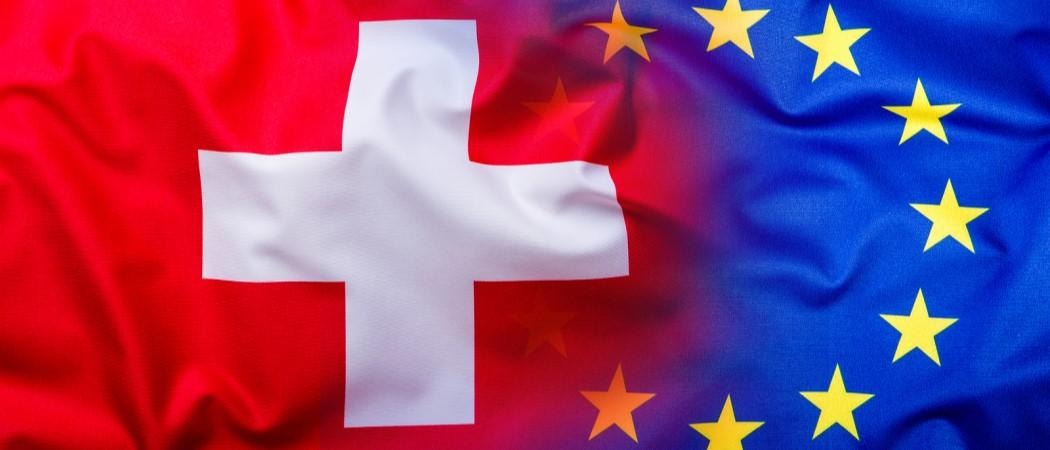Research cooperation between the EU and Switzerland is on hold, while list of third countries invited to join new funding calls includes the UK and 17 others

The European Commission has excluded Switzerland from a provisional list of third countries eligible for Horizon Europe funding, leaving Swiss universities to wonder what will come of applications submitted this spring - and what the prospects are for research collaboration in the future.
The Commission has just published the final documents detailing calls, budgets and application deadlines for the next two years, but has yet to conclude negotiations with third countries on participation in the research programme.
However, a document dated 17 June encourages countries “with which association negotiations are being processed or where association is imminent” to join funding calls as a provisional workaround “until association agreements start producing legal effects.”
The list features 18 countries, including the UK, but not Switzerland. “Legal entities established in Switzerland are currently not covered by these transitional arrangements,” the list says.
The Swiss research and policy stakeholders are dismayed at the news.
“We are not amused at all,” said Olivier Küttel, head of international affairs at the Swiss Federal Institute of Technology Lausanne (EPFL).
“I am really dismayed,” said Yves Flückiger, rector of the University of Geneva.
Swiss researchers were encouraged to apply to the first Horizon Europe calls opened this spring by the European Research Council (ERC), before political tensions derailed bilateral scientific cooperation. Many Swiss researchers applied, but they are now left wondering what will happen with their proposals.
“We are still trying to figure out what are the consequences for ERC calls closed so far,” said Küttel. “Nobody knows what happens now to the submitted proposals.”
“This is a sign how far it has gone,” said Flückiger. “In this situation, research is hostage to a political game.”
A spat over cohesion money
Despite having associate status in previous R&D programmes, Switzerland has to negotiate access to Horizon Europe. However, a Commission spokesman told Science|Business that “exploratory talks with Switzerland are currently on hold.”
While Switzerland is not part of the EU, it contributes to the bloc’s cohesion policy. But in 2019 the Swiss parliament refused to unlock its €1.2 billion contribution, after the Commission banned Swiss banks and brokers from trading on the EU stock market.
“It is politically impossible to consider a new financial relationship with Switzerland as long as Switzerland is not paying its financial contribution to the EU cohesion policy,” the Commission spokesman said.
According to the Commission, Switzerland has not paid its contribution to the EU cohesion fund since 2012. Association to Horizon Europe is unlikely until Switzerland meets its financial obligations. “We will take into account the development and the prospect of the EU-Swiss relationship as a whole,” said the Commission spokesman.
According to Küttel, the Swiss parliament is likely to unlock the money in September. But he doubts that will be enough for Switzerland to be allowed back into Horizon Europe. “We still hope it will happen in September and negotiations can start,” he said.
“The Swiss government should release very rapidly the contribution,” said Flückiger. September may be “a little bit late”.
Déjà vu
Swiss government officials say the European Commission did not give any notification of its intention to exclude the country from the provisional arrangements that would give Switzerland access to Horizon Europe.
Cohesion money aside, Flückiger believes the exclusion is retribution for the fact that in May the Swiss government unilaterally ended seven years of political negotiations that aimed to supplement more than 100 bilateral agreements governing the relationship between the EU and Switzerland.
For Thomas Jørgensen, senior policy coordinator at the European University Association (EUA) the move by the Commission is a “logical consequence” of Switzerland suspending talks on the framework agreement with the bloc.
These negotiations were not directly related to collaboration in science, or with Switzerland’s wish to maintain its status as an associated country, but at the time an EU official said Brussels would now weigh the “value added” of Swiss participation in the Horizon Europe scheme “against the state of the overall relationship.”
“The strategy of the EU is to let the relation atrophy to the point where it begins to really hurt the Swiss," Jørgensen told Science|Business. "If there is no framework agreement, the Commission will not make any new agreements on market access – there is no legal link to association agreements, so this is a purely political move.”
“It is a real pity, and this is also the reason why Swiss universities have been so clear in their support for signing up to the framework agreement,” Jørgensen said.
In 2014, Switzerland’s participation in the previous EU research programme, Horizon 2020, was suspended for six months because of disagreements with the EU over a stricter immigration policy the Swiss government was debating. “As we have seen it before, relations between the EU and Switzerland in this area is taken hostage by other events,” said Jørgensen.
Green light for the UK
As Swiss researchers are left wondering what will happen with their Horizon applications, the main UK public research funding body, UKRI is telling researchers to start applying for EU grants, in advance of formal agreement on associate status.
Despite a rowdy debate over the future of EU-UK relations after Brexit, UK researchers and companies are eligible for all Horizon Europe calls, apart from applying for equity funding from the European Innovation Council. The UK will also have to agree with the Commission on rules for participating in sensitive projects in quantum and space technologies.
For the UK to become fully associated, the Commission’s specialised committee needs to meet and formalise the agreement detailed in the EU–UK trade deal of December 2020.





 A unique international forum for public research organisations and companies to connect their external engagement with strategic interests around their R&D system.
A unique international forum for public research organisations and companies to connect their external engagement with strategic interests around their R&D system.